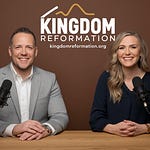Living in Grace's Embrace: Receiving and Extending Mercy
Opening Scripture
"Be kind and compassionate to one another, forgiving each other, just as in Christ God forgave you." - Ephesians 4:32
"For if you forgive other people when they sin against you, your heavenly Father will also forgive you." - Matthew 6:14
Today's Reflection
As our journey with Jesus deepens, we encounter the transformative power of grace and forgiveness—divine gifts that reshape every aspect of our walk with Him. Having experienced the intimacy of true worship, we now explore how that closeness with God enables us to both receive and extend His boundless mercy.
Jesus's teaching and actions repeatedly challenged the human tendency to limit grace and restrict forgiveness. Consider the parable of the unmerciful servant (Matthew 18:21-35). When Peter asked about forgiving seven times—already exceeding the rabbinical standard of three times—Jesus responded with "seventy-seven times," effectively removing all numerical limi…
Listen to this episode with a 7-day free trial
Subscribe to Kingdom Reformation with Glenn Bleakney to listen to this post and get 7 days of free access to the full post archives.













